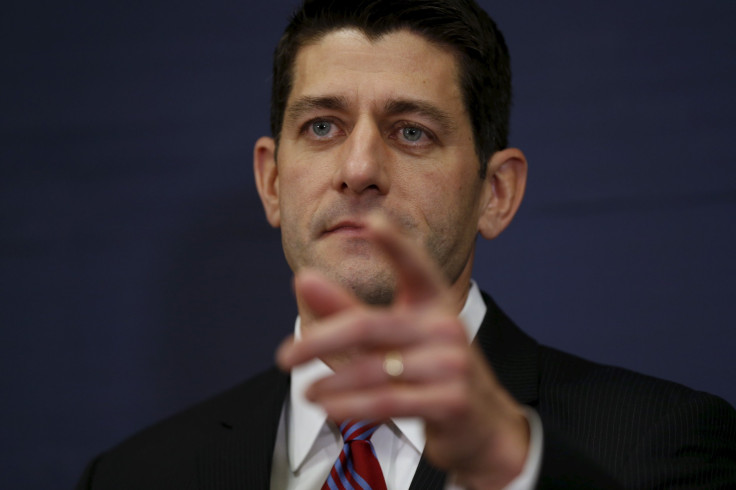Obamacare Repeal 2016: House Votes To Defund Healthcare Law, Sends Bill To President Obama For Veto

In a vote that was largely symbolic, the Republican-led House of Representatives voted 240-181 Wednesday to dismantle the Affordable Care Act and defund Planned Parenthood, following in the footsteps of the Senate, which passed a similar measure in December. The vote sends the bill on its way to the White House guillotine, where it is certain to receive a veto from President Barack Obama.
The measure’s passage follows through on a campaign promise made during the 2014 midterms, when Republican lawmakers vowed to put legislation on the president’s desk and force vetoes that would clarify the opposing positions. Ryan said Tuesday night on Fox News that he plans on sending more bills like that to the White House in order to stake out specific differences between the administration and Republican policy goals ahead of the coming presidential election.
“I mean, how many times have we been saying we want to put bills on his desk that say who we are and what we believe versus what he believes,” Ryan said. “We have to go on offense in 2016, and we have to offer a bold agenda to the country.”
The House has voted many times (at least 60, according to members of Congress) to defund Obamacare, however this is the first time Senate Republicans have been able to move past Democratic filibusters that normally require bills to receive 60 votes. Since this proposed Obamacare repeal is a defunding mechanism as opposed to an outright repeal, Republicans were able to use an obscure practice called “reconciliation,” which allows both chambers to consider legislation while prohibiting filibusters from Democrats in the Senate.
Public opinion toward Obama’s signature healthcare overhaul -- which became law in 2010 -- has always skewed negative, and the most recent average of polls on the issue shows that Americans oppose Obamacare 50.2 points to 42.5 points. Planned Parenthood has seen a decline in support since 1989, when 82 percent of Americans saw the healthcare provider in a favorable light, however approval is still in the black. Registered U.S. voters approved of Planned Parenthood 44 percent to 39 percent as of October.
That said, healthcare isn’t the most pressing issue for voters. As far as non-economic problems are concerned, issues like dissatisfaction with government and immigration top the list as main concerns, according to a Gallup poll conducted in September. Health care comes in fourth place. One important caveat here is that issues of main concern often change with high profile events. For instance, terrorism was low on voter priority lists in the Gallup poll, however terrorist attacks in Paris and San Bernardino, California, have since rekindled national and political concerns on the issue.
© Copyright IBTimes 2024. All rights reserved.












